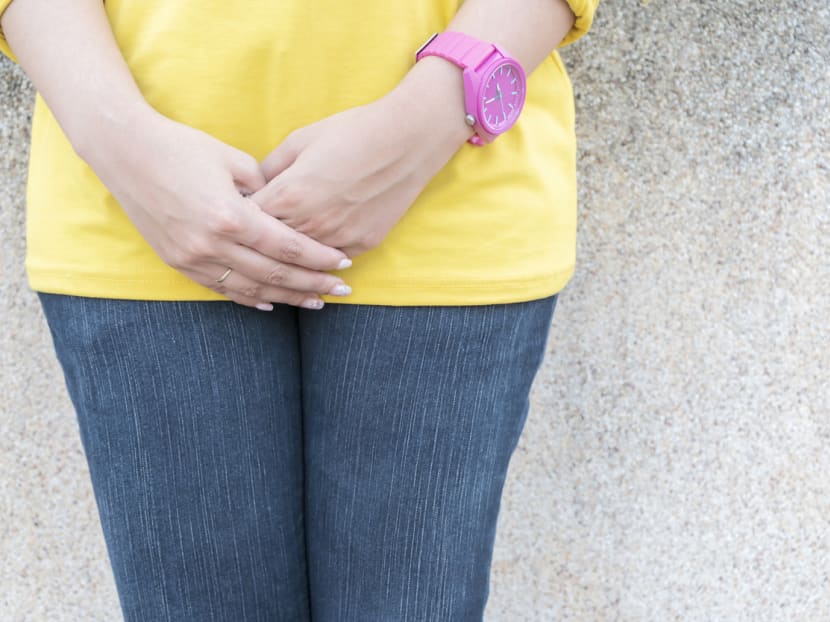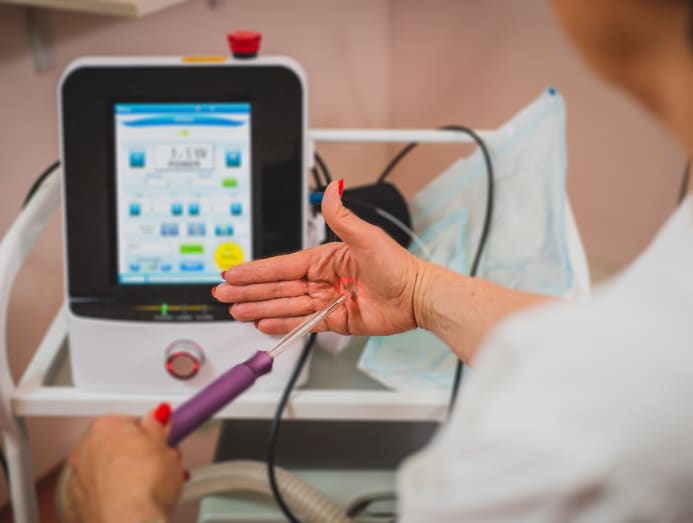What causes vaginal dryness during menopause and how can it be treated?
Vaginal dryness is not simply something you have to put up with – there is plenty of help, says an expert.

Vaginal dryness occurs at the perimenopause stage and can worsen if left untreated. (Photo: iStock/jittawit.21)
Add this to the list of health conditions that aren’t simply a normal consequence of ageing and for which you certainly do not have to suffer in silence.
A recent study conducted by the National University Health System (NUHS) showed that vaginal dryness is the biggest risk factor of sexual dysfunction among midlife women.
Women who suffer from this uncomfortable condition experienced a whopping 1,300 per cent increase in their risk of developing more serious symptoms like genital pain and an inability to orgasm, the study showed.
WHEN AND WHY DOES VAGINAL DRYNESS HAPPEN?
Vaginal dryness is caused by a lack of oestrogen, said Dr Susan Logan, senior consultant at the National University Hospital’s Department of Obstetrics and Gynaecology.
“The vagina and vulva are covered with oestrogen receptors, and the changes in hormone production and low levels of oestrogen would lead to vaginal dryness,” she said.
The symptoms of vaginal dryness typically begin during perimenopause, which comprises two transition periods: Early menopause transition and late menopause transition.
If you’re going through perimenopause, you can identify the transition you’re in by looking at your menstrual cycle length and frequency.
In early menopause transition, the length of your menstrual cycle would be more than seven days longer than usual, said Dr Logan. You could have shorter menstruation (menses) and even get your period twice a month.
In late menopause transition, there would be two or more skipped cycles, with women not experiencing menses for 60 days or more.
Dr Logan said women going through the two transitions may suffer vaginal dryness, with symptoms including irritation, a burning sensation, itchiness, painful sex, reduced arousal and decreased orgasm, and even bleeding during intercourse. They may also find themselves needing to urinate more often or may suffer urinary tract infections more frequently.
These are “unpleasant symptoms”, said Dr Logan, adding that bleeding would, of course, “cause worry” and affected women may need to undergo examination, ultrasound or other tests to rule out cancer.
Perimenopause is followed by menopause, which is marked by a year of having no menses.
If not treated, symptoms of vaginal dryness that begin at perimenopause can worsen, Dr Logan said.
PRODUCTS CAN HELP
Dr Logan suggests that women who experience vaginal dryness can first try products that are available over the counter.
Vaginal moisturisers, for example, can be found in pharmacies and can be used long-term, twice or thrice per week.
For use during sex, Dr Logan recommends water- and silicone-based lubricants, which are also readily available.
Those who prefer natural alternatives can try olive oil and coconut oil, although she warned that oil-based products may affect the integrity of condoms.
Finally, there are vitamin E options you can try that may be inserted vaginally or used topically in oil form, to combat the dryness. Vitamin D may also be consumed, said Dr Logan.
Studies have stated that vitamin D helps regulate the growth of skin tissue in the vagina, while vitamin E can influence tissue recovery, boosting vaginal elasticity and thus reducing dryness.
Women who have vaginal dryness may also go to their general practitioner for prescriptive medication.
The doctor may recommend vaginal oestrogen, said Dr Logan, which comes in the form of cream, oral tablet or a soft, removable ring inserted into the vagina. The tablets and cream are used daily for two weeks, then thrice weekly, to help maintain healthy oestrogen levels that in turn ensure moisture.
Dr Logan assured that vaginal oestrogen is safe, although it should not be routinely used by breast cancer survivors or women with unexplained vaginal bleeding. Additionally, the NUHS study found that vaginal oestrogen was extremely effective in helping avoid sexual dysfunction.
Another option is topical lidocaine, an anaesthetic that comes as a gel or ointment and can help with painful sex if applied before penetration. While it has a slight numbing effect, it is said not to have adverse effects on overall sexual enjoyment.
LASER TREATMENTS AND PHYSIOTHERAPY
Vaginal lasers are also available, although more research studies – particularly on long-term follow-up and safety, are needed, said Dr Logan.
Laser treatment is typically used to promote collagen growth and skin renewal, both of which can restore moisture to a part of the body. Collagen is a protein that boosts skin elasticity.
At women’s clinic InSync Medical, for example, there is a procedure called FemiLift – a laser skin resurfacing treatment that uses carbon dioxide. Patients of InSync Medical typically attend three sessions, one month apart. The treatment is painless, although patients should abstain from sex for at least three days, the clinic said.

Another clinic Fusion Medical offers the Fotona Smooth laser, which is said to work by stimulating the production of collagen. It is fast and painless, the clinic said.
Exercise, specifically pelvic floor training, can also help with vaginal dryness and related sexual dysfunction.
A 2016 study showed that 12 weeks of pelvic floor training, which not only improves muscle tone but also boosts skin elasticity, can reduce vaginal dryness and other symptoms of painful sex. The study concluded that exercise makes a good complement to oestrogen therapy.
Aside from medication and other forms of treatment, women who suffer from vaginal dryness may also benefit from opting for loose bottoms as tight trousers may rub against the skin and increase discomfort, said Dr Logan. They may also want to avoid using fabric conditioner on underwear as this may irritate the skin.
If symptoms fail to improve upon trying the usual treatments, seek the help of a women’s health specialist, she said, and if concerns are not being addressed by an existing doctor, get a second opinion.
“There is plenty of help out there. Just ask!” said Dr Logan.
CNA Women is a section on CNA Lifestyle that seeks to inform, empower and inspire the modern woman. If you have women-related news, issues and ideas to share with us, email CNAWomen [at] mediacorp.com.sg.








